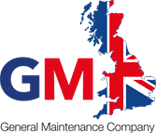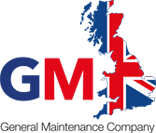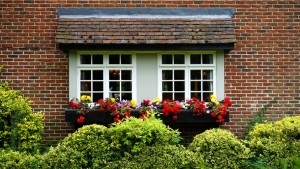Internal winter maintenance ideas
Last month’s blog looked at preparing your property externally for the winter months ahead. This month we discuss maintenance preparations you can make to the inside of your property to prevent falling victim to the harsh winter weather.
With the exterior taken care of now it’s time to turn your attention to the interior of your property. Carrying out some routine jobs now could pay dividends and help you avoid any winter weather related maintenance problems.
Check your roof and loft space
After rain, check for signs of a leak in the loft. Mould or wet insulation is a sure sign there is a problem with the roofing material, such as a loose tile. Wetness or damp around pipes or the chimney breast can indicate damage to flashings.
We would also recommend externally checking your roof and chimney, looking for missing or slipped tiles, missing or risen flashings and gaps in the mortar. If maintenance is needed then we always recommend using a professional roofer to do this.
To improve insulation and reduce heating bills it is essential to ensure all internal pipes are well lagged and you have at least the minimum government recommendation of 270mm mineral wool loft insulation. A well insulated roof space can help lower heating bills by up to 20%
Draught excluding
Did you know that 35% of heat loss is through walls and 10-15% through poorly fitting or badly insulated doors and windows? Replacing windows and exterior doors for more energy efficient ones is the best solution when possible. One simple and relatively inexpensive way to improve the insulation and energy efficiency of your property is to make sure all doors and windows fit closely and don’t allow draughts. Fix any windows that don’t close properly and apply foam insulation strips to create a tighter seal if necessary. Use draught excluders across the base of exterior doors or consider adding a heavyweight door curtain across ill-fitting doors to reduce draughts. Now is the time to get up to date with all those maintenance jobs you may have been putting off!
Condensation
This is the most common form of damp that can appear in your home and cause structural damage to your property. This can include causing wallpaper to peel away, damp patches to appear on walls and a build-up of moisture which is most visible on windows. This can often lead to damp and mould growth which can be potentially dangerous to health if left untreated. Be alert to any signs of leaks or condensation on the ceilings, especially at the outer edges. Although you want to minimise draughts, it is necessary to ensure rooms are adequately ventilated to avoid a build-up of condensation. Ensure tumble dryers are properly ventilated to the outside.
Tenanted properties
A boiler should always have an annual service. A tenanted property also requires an annual gas Safety certificate – contact GMC who can arrange this for you. A boiler breakdown is at best inconvenient, and could potentially lead to a landlord having to temporarily rehome tenants if the fault cannot be identified and repaired quickly. A well-maintained boiler works more efficiently, will save you money and most importantly could prevent a terrible tragedy. We also recommend installation of CO2 detectors in general, and in particular if the rental property has a coal or wood burning fire or stove as this is a legal requirement.
Ensure your tenants understand the importance of adequate ventilation in your property. This includes airing rooms, especially bathrooms after showering, make sure tumble driers are well vented to the exterior and that when cooking they use saucepan lids to reduce the amount of moisture in the room. Even tropical fish tanks can be covered to reduce the amount of condensation created. These may be relatively small maintenance tips but can make a big difference overall to their living conditions and the care of your property. Far better to avoid damp than have to deal with the consequences.
Vacant properties
Prevent a disaster from a burst pipe in an empty property by turning off the heating system and having the property drained down. GMC offer a dedicated drain down service which will ensure the full system is drained, including radiators and storage tanks, ball cocks tied up, stop tap turned off, warning signs put over WC’s, boilers etc and will also include a report and photographs. However, it is important to check with your insurer as although many insist a property is drained down, there are some policies that require the heating system to be left on and set to a specific temperature (usually 13-15 degrees). In this instance GMC can provide a routine inspection service to set the heating and ensure it comes on and then monitor the property on a regular basis, if required, supplying photos and a property report.

 Welcome To The General Maintenance Company
Welcome To The General Maintenance Company



Sorry, the comment form is closed at this time.